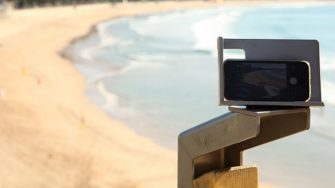
Synopsis
Rip currents continue to be the greatest hazard on Australian beaches, accounting for 26 fatalities on average each year. Numerous studies have shown that the ability of most beachgoers to identify rip currents is poor, which is problem given that most drowning fatalities occur on beaches without lifeguards. The UNSW Beach Safety Research group recently received funding from the Australian Research Council and Surf Life Saving Australia to evaluate the educational benefits of a rip current spotting app ‘The Rip Eye’ which is developed using an AI platform. The effectiveness of this app and other educational methods in improving knowledge of rip currents will be evaluated in a number of settings including the beach and workshops. Outcomes will influence future beach safety education efforts in Australia and globally. Funding is provided to support the project.
Aims
This study aims to evaluate the effectiveness of the ‘Rip-Eye’ app and other methods in improving rip current identification by the public.
Students benefits
Students will work with the UNSW Beach Safety Research Group and gain valuable experience in a range of data collection and analysis methods and will work on a project that will have significant practical outcomes that will be of benefit to Surf Life Saving Australia, as well as other organisations interested in beach safety education. It is intended that this project will lead to a publication in a scientific journal.
Supervisor: Professor Rob Brander
Get involved
To learn more about this project, contact Professor Robert Brander
